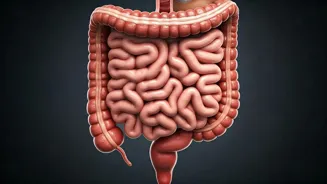Pressure Changes Explained
The primary culprit behind jet belly is the drastic shift in air pressure that happens during a flight. As the aircraft ascends, the air pressure inside
the cabin drops significantly. This reduced pressure can cause gases within your digestive system to expand. Consider it like opening a bottle of soda at a high altitude – the gas bubbles become larger. These expanding gases lead to bloating, discomfort, and sometimes excessive gas production. Your gut is essentially experiencing a form of decompression sickness. The lower pressure doesn't just affect the gases; it can also influence fluid retention. Your body may try to compensate for the pressure change by holding onto more fluids, contributing to that heavy, bloated feeling. Furthermore, the cabin air is often dry, which can exacerbate dehydration and worsen digestive issues. This dry air can slow down your digestion and increase the likelihood of constipation, thus intensifying the discomfort associated with jet belly. The combination of these factors makes air travel a perfect storm for digestive upset.
Dietary Factors to Consider
What you eat and drink before and during your flight significantly impacts your risk of developing jet belly. Certain foods are notorious for causing gas and bloating, such as carbonated drinks, processed foods high in sodium, and cruciferous vegetables like broccoli and cauliflower. These items generate more gas in the digestive system, which, when coupled with the pressure changes, can be particularly problematic. Similarly, the consumption of large meals right before a flight can overload your digestive system, making it even more susceptible to bloating. Dehydration can worsen these issues. Not consuming enough water can lead to constipation, which amplifies the discomfort associated with bloating. Alcoholic beverages are also a common cause of gut problems during travel. Alcohol can further dehydrate you and can disrupt normal digestive processes, thus increasing the chances of experiencing bloating and gas. The lack of movement on a flight also contributes to the problem. Being seated for extended periods can slow down digestion, exacerbating the effects of diet and pressure changes.
Stay Hydrated and Active
Preventing jet belly involves implementing a combination of proactive strategies before and during your flight. Adequate hydration is paramount. Drink plenty of water, and consider avoiding excessive amounts of caffeinated beverages. Staying hydrated will keep your digestive system running smoothly and assist in mitigating dehydration-related issues. Gentle movement during your flight is just as important. Stand up and walk around the cabin every hour or two to stimulate your digestive system. Even simple stretches performed at your seat can help to keep things moving and prevent bloating. Choose foods that are gentle on your stomach. Prioritize fruits, vegetables, and lean proteins. Avoid heavy, processed foods that can trigger gas and bloating. Consider incorporating fiber-rich foods into your pre-flight diet. Fiber aids in promoting regular bowel movements, preventing constipation, and decreasing the likelihood of abdominal discomfort. Finally, listen to your body and be mindful of its signals. If you begin to feel bloated or uncomfortable, take steps to alleviate these symptoms. These combined strategies help to improve your overall experience during air travel.
Flight-Friendly Food Choices
Choosing the right foods and beverages before and during a flight plays a crucial role in minimizing the chances of developing jet belly. Focusing on hydrating foods can be particularly helpful. Water-rich fruits and vegetables such as watermelon, cucumber, and lettuce are light, easy to digest, and can help keep your body hydrated. Lean proteins like grilled chicken or fish are also preferable. They're less likely to trigger bloating compared to rich, fatty meals. Opting for easily digestible grains, such as cooked quinoa or plain oatmeal, is also a wise choice. Avoiding highly processed snacks, carbonated beverages, and overly salty foods can significantly diminish the likelihood of digestive distress. Prepared meals that feature fresh vegetables and whole grains are also beneficial. The idea is to choose foods that require less energy from your digestive system. Consider packing a small snack bag with fruit or trail mix to help manage hunger during the flight without relying on unhealthy options. Being mindful of what you consume and making informed choices supports a comfortable flight experience.
Simple Remedies and Tips
There are several practical steps you can take to alleviate the symptoms of jet belly if they do arise. Over-the-counter medications are often beneficial in relieving gas and bloating. Medications containing simethicone can help break down gas bubbles and provide relief. Another option is to sip on herbal teas, particularly those with calming properties. Peppermint and ginger teas have been known to aid digestion and soothe the stomach. If bloating and gas are significant concerns, you can bring activated charcoal tablets. These can help absorb excess gas in your digestive system. It's beneficial to avoid tight clothing during your flight. Wearing looser clothes can improve circulation and prevent any constriction that could worsen bloating. Engaging in gentle stretches or light movement during the flight is also beneficial, as it promotes digestion. If symptoms persist or are severe, consult a healthcare professional to get medical advice. Remember that prevention, coupled with these remedies, can significantly improve your experience during air travel.















